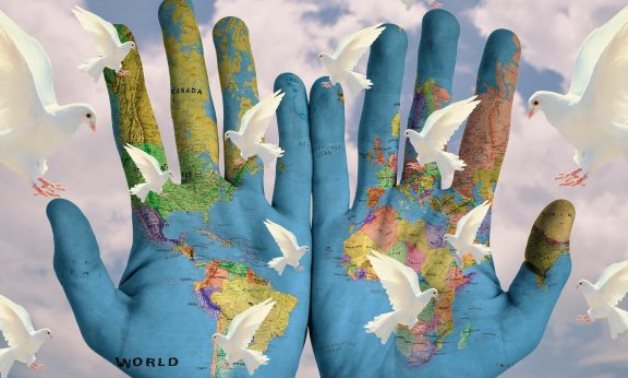
Image by S. Hermann & F. Richter from Pixabay
CAIRO - 4 March 2021: As rehabilitation, reconstruction and economic recovery are a must in areas that experienced armed conflict, Aswan Forum for Sustainable Peace and Development discussed Thursday sustaining peace post-conflict.
South Sudanese Minister of Foreign Affairs and International Cooperation Beatrice Khamisa Wani said that “reaching agreements in the first place is not easy. It requires a lot of conversations, tact, and time.”
“We aim for continuous cooperation from international community so as progress is made possible,” the South Sudanese minister added speaking of her country.
Since prevention is key, Wani underlined, “we need to tackle how arms reach the community.”
The minister also stressed that the DDR strategy (Disarmament, Demobilization, and Reintegration) must be comprehensive.
With regard to the socioeconomic conditions, Wani said, “look at education in time of pandemic....Amid the closure of schools, we don’t have the online option due to the lack of energy, electricity, and tablets in the hands of students.”
“IMF is allocating us funds to stabilize our central bank,” the minister stated shedding light on South Sudan’s monetary status. As for other economic aspects, the minister stipulated “We need support from partners.”
AU Commissioner for Political Affairs, Peace and Security Bankole Adeoye began by saying, “We need to congratulate Egypt on leading the African Renaissance” referring to the national projects undertaken in the sectors of infrastructure and urban expansion.
Giving an overview of the AU’s work, Adeoye said, “We eye robust post-conflict reconstruction...It’s a hard way but we’re getting there.”
“Reconstruction, national reconciliation, and stability are necessary for sustainable peace and democracy,” the AU commissioner asserted.
“Reconstruction can be supported by the UNDP, AfDB and other development banks,” Adeoye pointed out.
Presenting its work on the continent, AfDB Vice-President for Private Sector Solomon Quaynor stated that $7 billion were given to Sudan as support during the pandemic.
Quaynor added that food security and food supply are supported by $75 billion, with a focus on promoting national wheat production.
The African official underlined that value chains have no borders explaining that economic improvement in one country can has a spill over effect on other states.
Clarifying how SMEs are being promoted by the Bank, Quaynor said that is accomplished through access to energy and technology.
Showcasing the importance of transport, the AfDB vice-president said, “transnational highways alleviate the burden on states” as those are joint projects and not national ones.
As for equal opportunities, Quaynor said, “We integrate gender and youth in our projects by advancing women and youth entrepreneurship.”
World Trade Organization (WTO) Deputy Director-General Alan Wolff described the creation of an African free trade zone as a milestone.
On the other hand, underscoring a crucial economic sector that must be bolstered, Wolff said, “harnessing new energy is a challenge to Africa.”
Comments
Leave a Comment